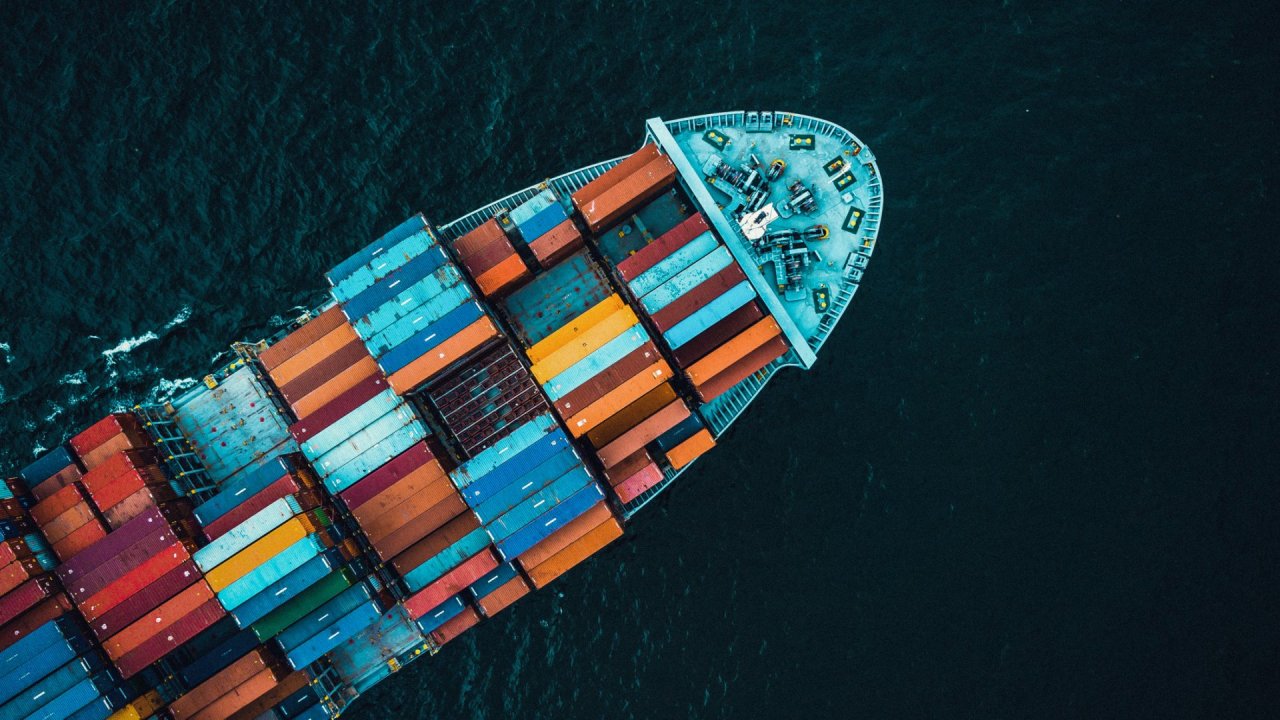
 |
Maersk reports that bunker costs increased year-on-year (YoY) by $408m in the second quarter (Q2) of 2024.
Fuel expenses in Q2 amounted to $1.85bn — a rise of 28.3% on the $1.44bn posted for the corresponding period in 2023.
Excluding the EU Emissions Trading System (ETS) effect of $28m, Maersk noted that bunker costs had risen by 26%. This was said to be partly due to a YoY growth in fuel consumption of 430,000 tonnes, or 17.7%, to 2.862m tonnes as a result of ship reroutings via the Cape of Good Hope. The second reason being the $44 — or 7.4% — uptick in the average bunker price to $636 per tonne, compared to the previous year's figure of $592.
Q2 bunker consumption for Maersk, 2020-2024
Bunker consumption in '000 tonnes.
| Year | Bunker consumption ('000 tonnes) |
|---|---|
| 2020 | 2333 |
| 2021 | 2725 |
| 2022 | 2651 |
| 2023 | 2432 |
| 2024 | 2862 |
Q2 average bunker price for Maersk, 2020-2024
Average bunker price in $ per tonne.
| Year | Bunker price ($/mt) |
|---|---|
| 2020 | 328 |
| 2021 | 475 |
| 2022 | 827 |
| 2023 | 592 |
| 2024 | 636 |
In its financial results, the Ocean division's operating earnings (EBITDA) declined YoY by $852m, or 37.7%, to $1.407bn, and profit before financial items (EBIT) fell $735m, or 61.0%, to $470m.
As regards overall group performance, Maersk posted a net underlying profit of $623m — a decrease of $723m, or 53.7%.
In its guidance for the rest of 2024, Maersk said a $100 change in the price of bunker fuel would lead to the group's EBIT varying by $0.2bn.

|
ICS webinar explores regulatory framework for nuclear-powered merchant ships
Industry experts discuss the timeline and challenges for adopting nuclear propulsion in the commercial shipping sector. |
|
|
|
||

|
Oilmar DMCC seeks senior bunker trader for Dubai office
Dubai-based energy trader recruiting for Middle East, Indian subcontinent and Africa trade flows. |
|
|
|
||

|
Oilmar DMCC seeks bunker traders for Singapore office
Dubai-based trader recruiting mid-level and senior professionals to expand Asia-Pacific marine fuels operations. |
|
|
|
||

|
ClassNK updates EU shipping emissions guidance for LNG-fuelled vessels
Japanese classification society releases revised FAQs addressing methane slip measurement procedures. |
|
|
|
||

|
Bureau Veritas delivers first 15,000-teu methanol dual-fuel container ship for CMA CGM
Classification society completes delivery of CMA CGM Monte Cristo built by DSIC Tianjin. |
|
|
|
||

|
IBIA announces new date for mass flow meter training course in Rotterdam
Training scheduled for 12 May follows mandatory MFM implementation at Rotterdam and Antwerp-Bruges ports. |
|
|
|
||

|
Maersk and Hapag-Lloyd suspend Strait of Hormuz transits amid Middle East security crisis
Container carriers reroute services around the Cape of Good Hope as military conflict escalates. |
|
|
|
||

|
Operations continue as normal at most Middle East ports
Most facilities operating normally, with exceptions in Bahrain, Oman and Saudi Arabia. |
|
|
|
||

|
Naftomar takes delivery of 93,000-cbm dual-fuel ammonia carrier
Gaz Ronin features a MAN dual-fuel engine with high-pressure selective catalytic reduction technology. |
|
|
|
||

|
AYK Energy completes world’s largest marine battery retrofit on Wasaline ferry
Aurora Botnia receives 10.4 MWh battery system, bringing total capacity to 12.6 MWh. |
|
|
|
||
| Maersk signs green methanol deal with China's Goldwind [News & Insights] |
| Maersk posts $930m drop in Q3 fuel costs [News & Insights] |
| Maersk procures fuel for world's first methanol-enabled boxship [News & Insights] |